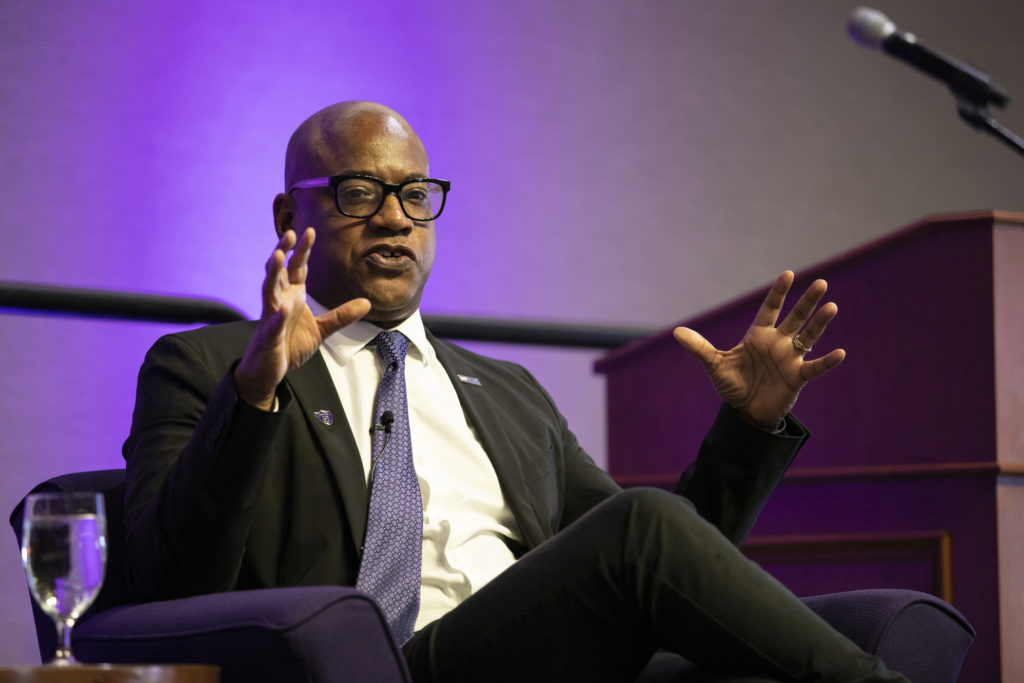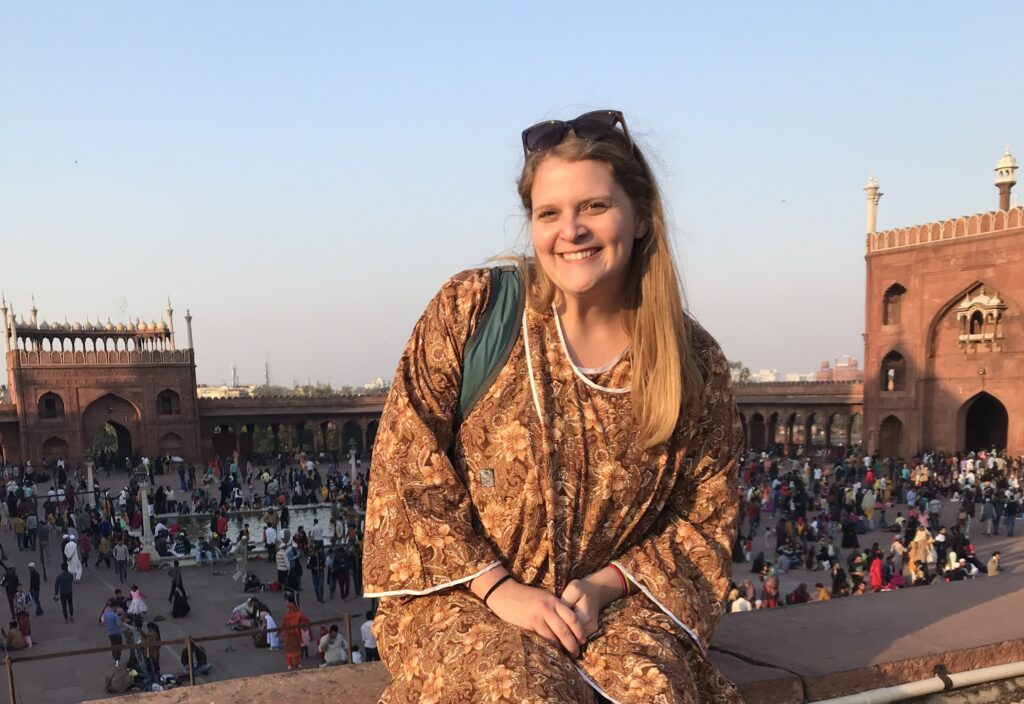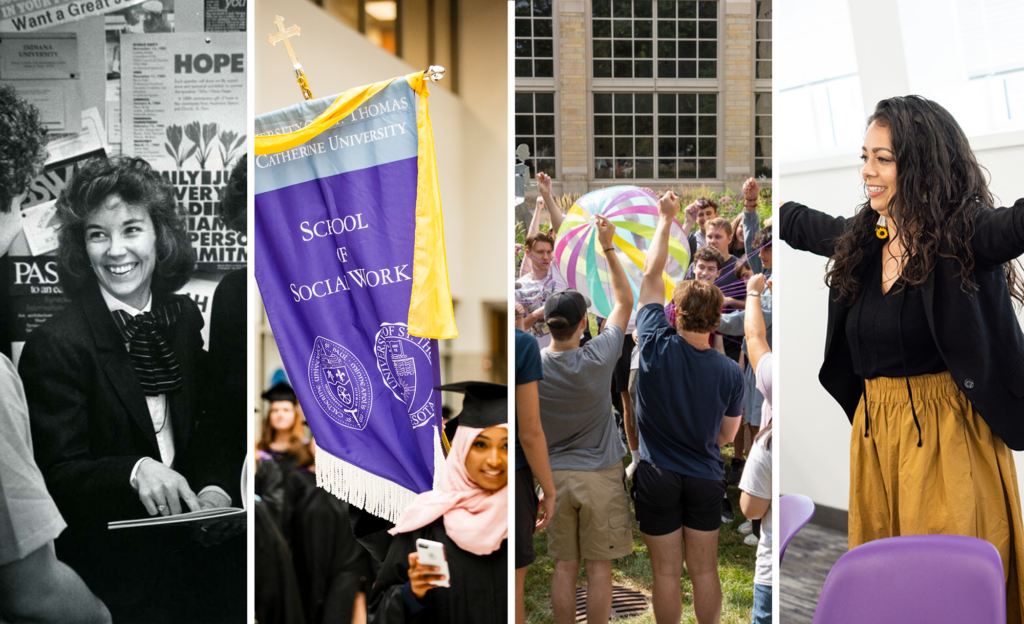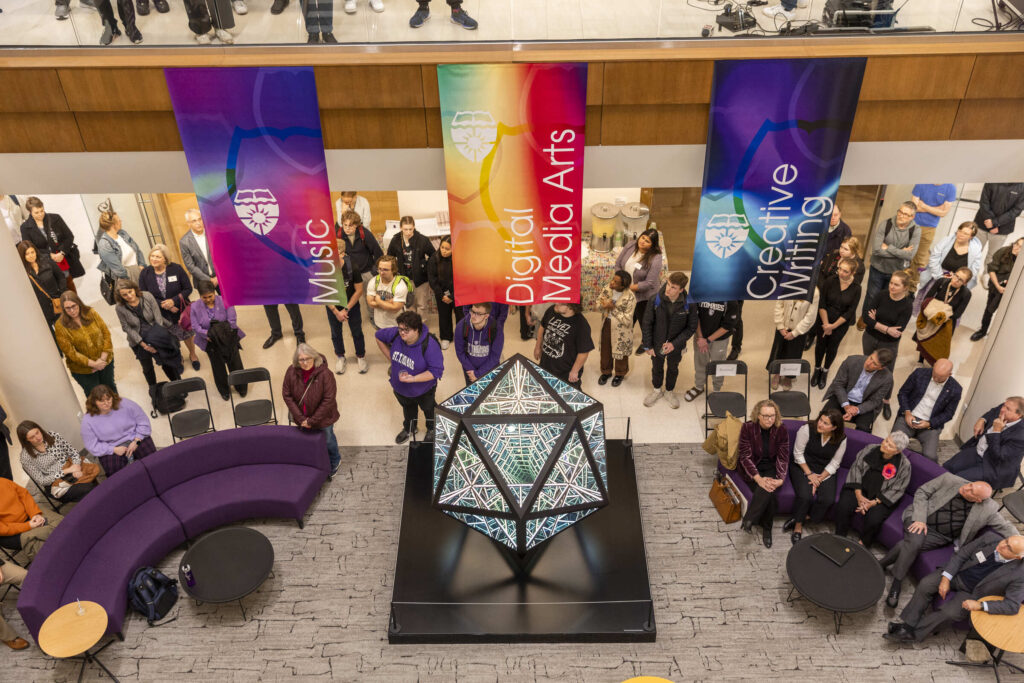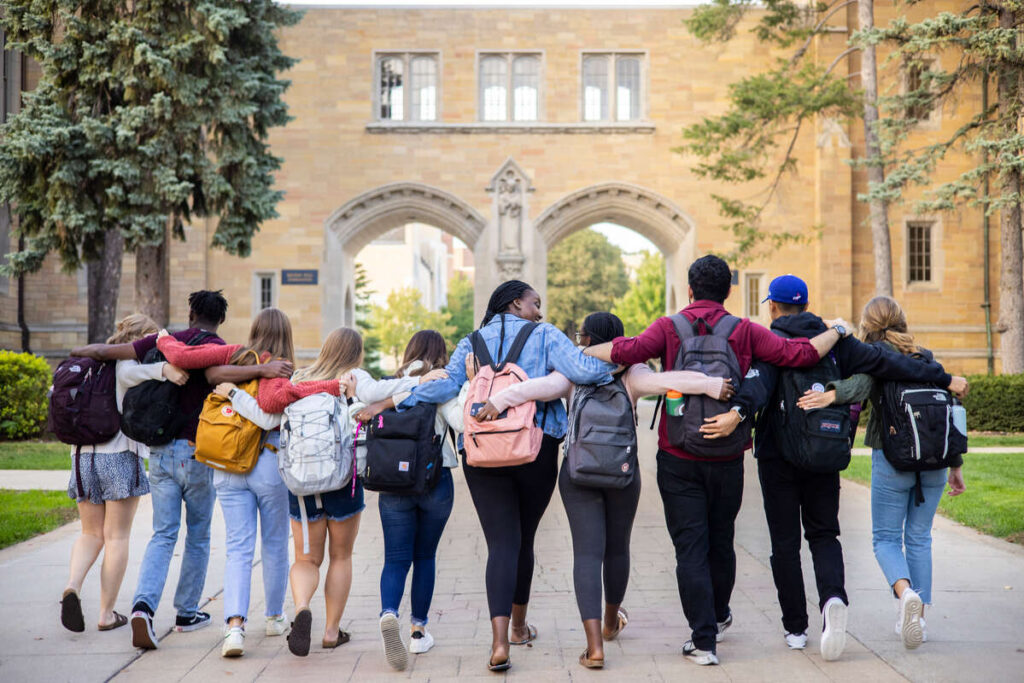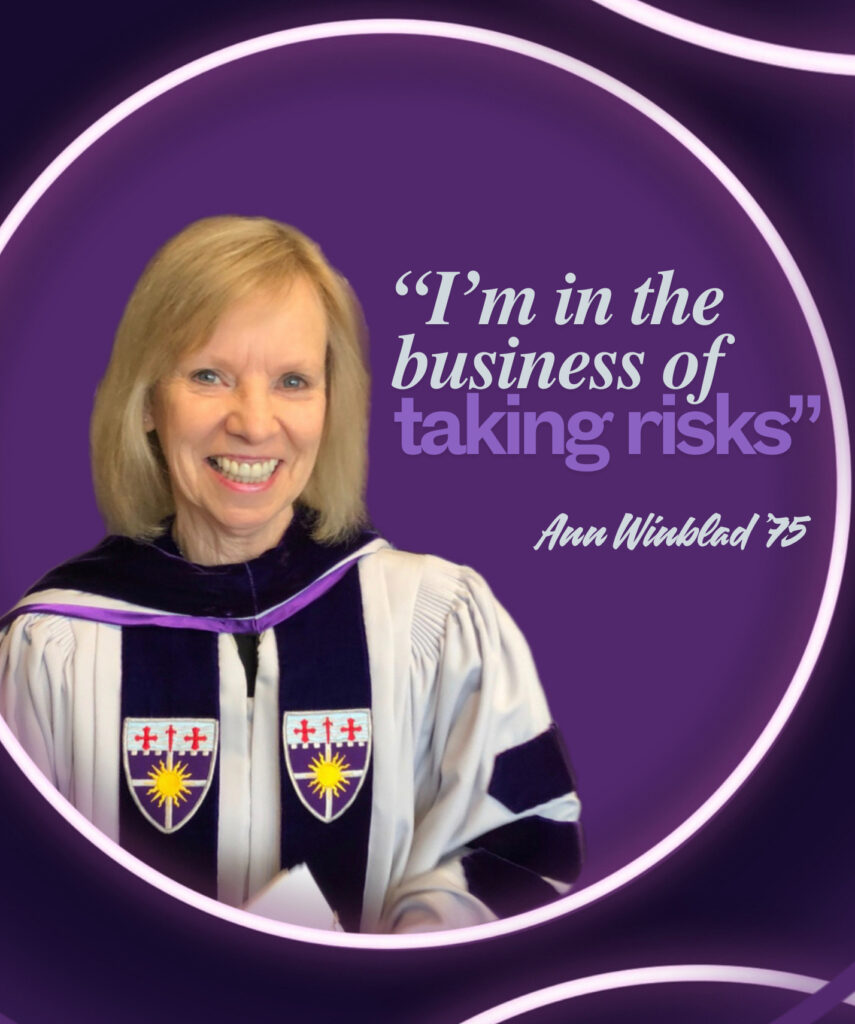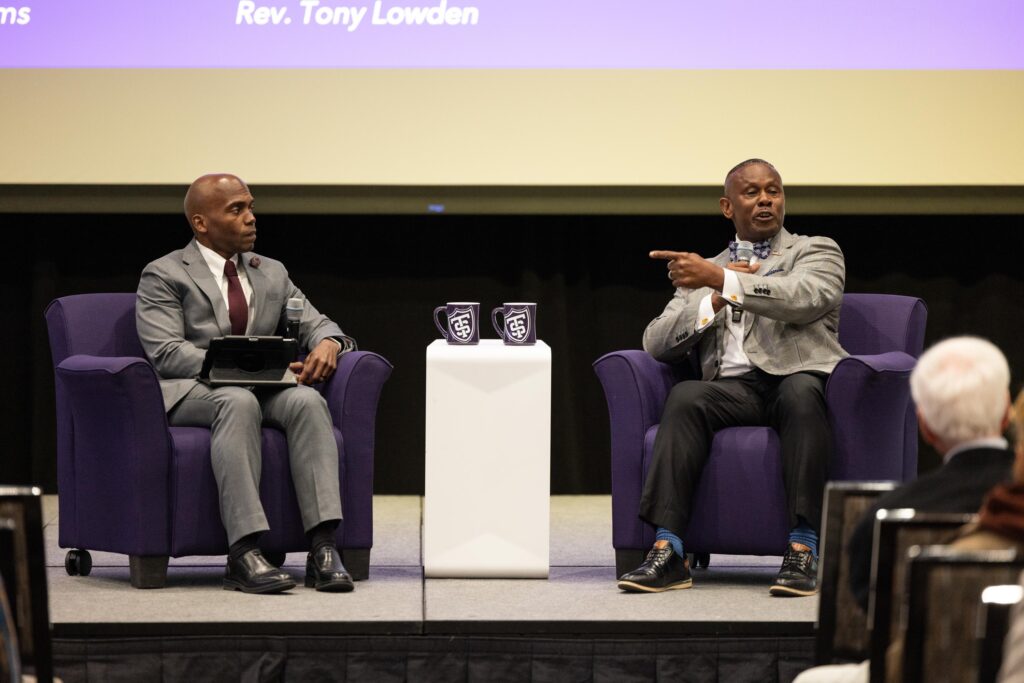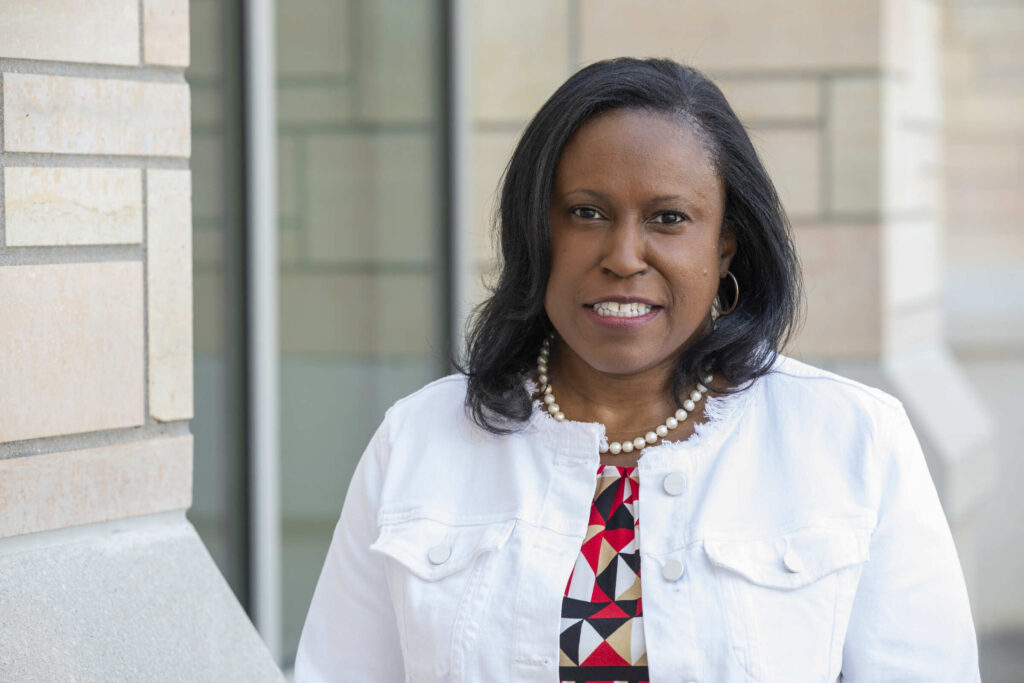U.S. Bank’s Greg Cunningham and Best Buy’s Amelia Williams Hardy have a few things in common. They are both chief diversity officers, or CDOs, at Minneapolis-based Fortune 500 companies. They both obtained a bachelor’s degree from a historically Black university before securing their MBA elsewhere. And both sit on advisory boards at the University of St. Thomas – Cunningham at the Dougherty Family College since its 2017 inception and Hardy at the Opus College of Business as of 2022.

“It was an easy decision for me to support Dougherty Family College. I saw myself in those kids,” said Cunningham about the associate degree option where 95% of the scholars are of Asian, Black, Latino or Indigenous descent. He has taken time to speak in DFC classes and inspire its scholars to dream big.
As African Americans who made their careers in marketing, Cunningham and Hardy know the road to success involves choices. For example, neither was seeking a senior leadership position in the DEI space when they were first tapped by their respective companies.
“I wasn’t a diversity practitioner and didn’t have any experience in HR,” Cunningham said. He landed in Minneapolis in 1995 as an area director for the United Negro College Fund – the organization whose scholarship made it possible for him to attend college, and where he now has a seat on the national board. He went on to spend 16 years in marketing at Target Corporation and had spent time in customer engagement for another bank. He’s been CDO at U.S. Bank since 2015.
“I never had a desire to do (DEI work) full time. I live it,” said Hardy, who spent 15 years at 3M before landing as a marketing director at Best Buy in 2014.
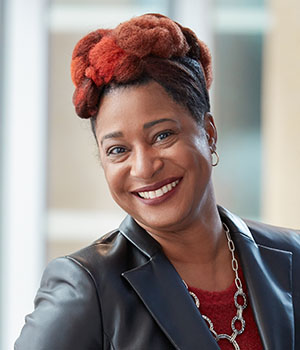
Hardy was tapped by Best Buy CEO Corie Barry to step into a DEI vice president role. Hardy said, “This was right after the murder of George Floyd. My perspective changed after living through that unrest. I said, ‘What better way to marry my passion and purpose than moving into the DEI space.’” One year later, in 2021, she rose to chief inclusion and diversity officer.
“When you talk about diversity, equity and inclusion, it’s about seeing something in people that can bring value to your organization, to your community,” said Cunningham, who reports directly to CEO Andy Cecere ’82.
Nearly 50% of the Fortune 500 have chief diversity officers. The majority of them, 76%, are white. Blacks constitute 3.8% – fewer than Hispanics (7.8%) and Asians (7.7%). Overall, Black and Indigenous people and other people of color (BIPOC) constitute 17% of C-suite seats in the Fortune 500, according to the Society for Human Resource Management (SHRM). Blacks held 3.2% of those positions.
Cunningham and Hardy are role models. Not just within their companies and the community, but also to the Tommies who will one day graduate to jobs in corporate America.
“Greg has been an effective mentor to our alumni, several of whom have been hired by U.S. Bank after graduation,” DFC Dean Buffy Smith said. U.S. Bank was one of DFC’s inaugural corporate sponsors and recently renewed a five-year commitment to the college, which includes internship opportunities.
“I know that without someone giving me an opportunity, I wouldn’t be sitting here,” Cunningham said.
Greg Cunningham, U.S. Bank'sI know that without someone giving me an opportunity, I wouldn’t be sitting here."
Senior Executive Vice President and Chief Diversity Officer
While Cunningham and Hardy chose the road less traveled, they have always been DEI champions, shaped by different experiences in their youth.
Cunningham was raised in a Black segregated area of Pittsburgh. During the civil unrest of the 1960s, he helped his father make handmade signs that read “owned by a soul brother.” They displayed them in the windows of their family-owned butcher shop with the intent to deter rioters from looting and burning the place a second time.
Hardy grew up in the 1980s in a predominantly white neighborhood in suburban Kansas City, Kansas, often the only Black in her Overland Park classes. The lack of diversity led her to start an equity club in high school.
Nearly day one at Best Buy, she said, “I was asked if I would be a champion for our Black Employee Resource Group – I agreed to do it. It was a significant part of building a sense of community, and I felt a sense of belonging pretty quickly.” She also became a leader in the women’s Employee Resource Group.
She added that since Floyd’s death in May 2020, “Society has asked corporate America to be more accountable in a way that has never happened before. And companies have a reason to answer that call.”
As a result, Best Buy, a long supporter of diversity, put a renewed focus on the retention rate and parity of women and its BIPOC employees. “By going public with those commitments, it has elevated our accountability and it has rallied Best Buy around these commitments,” Hardy said.
She sees accepting a seat on the Opus College of Business Advisory Board as an offshoot of that commitment.
“One of our top priorities at Best Buy is empowering the next generation of business leaders and making sure they have the skills, tools and resources to succeed throughout college and beyond,” Hardy said. “I’m excited to be part of the Opus College of Business Advisory Board to continue cultivating an inclusive and diverse culture on campus and in the process, build a stronger, more equitable business community in the Twin Cities.”
One of Hardy’s first advisory connections with the students was at the annual Fowler Business Concept Challenge organized by the Schulze School of Entrepreneurship at Opus.
“Amelia brings to Opus deep experience as a strategic leader at several major corporations,” Opus Dean Laura Dunham said. “By being a leader in diversity and equity and inclusion, her expertise and insights around creating a culture of inclusion will be vital to the college as we seek to close the opportunity gap in our community.”

